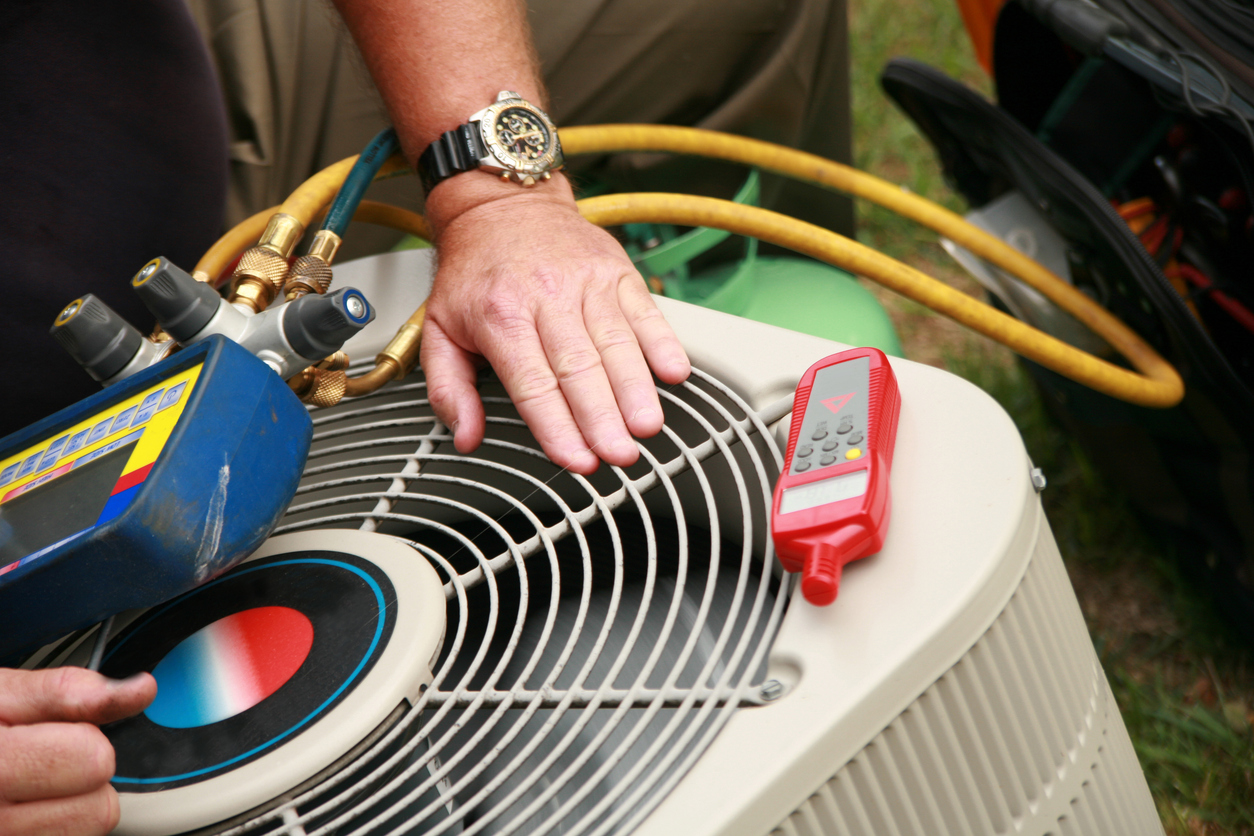HVAC Heat Load Calculation: A Comprehensive Guide for Florida Homeowners
Living in Florida, a state known for its warm climate and high humidity, having an efficient HVAC (Heating, Ventilation, and Air Conditioning) system is essential for maintaining comfort and energy efficiency in your home. One of the critical aspects of ensuring your HVAC system operates optimally is conducting an accurate heat load calculation. This process determines the heating and cooling needs of your space, allowing you to select the appropriately sized HVAC system. In this comprehensive guide, we will delve into what an HVAC heat load calculation entails, its importance, how it improves energy efficiency, and the role of professional services in performing these calculations.
Understanding HVAC Heat Load Calculation
A heat load calculation is the process of determining the amount of heating or cooling a building requires to maintain a comfortable indoor temperature. This calculation considers various factors, including the building’s size, insulation, windows, orientation, and the local climate. The primary goal is to ensure that the HVAC system installed is neither too large nor too small for the space, as either scenario can lead to inefficiencies and higher energy costs.
Why Accurate Heat Load Calculation Matters
Optimal Comfort: An accurate heat load calculation ensures that your HVAC system can maintain a consistent and comfortable indoor temperature. An undersized system may struggle to cool or heat your home adequately, while an oversized system can lead to temperature fluctuations and humidity issues.
Energy Efficiency: Properly sizing your HVAC system can significantly improve energy efficiency. An accurately sized system operates more efficiently, reducing energy consumption and lowering your utility bills. This is particularly important in Florida, where air conditioning is a major part of energy use.
Longevity of Equipment: HVAC systems that are appropriately sized for your home tend to have a longer lifespan. An oversized system may cycle on and off more frequently, leading to increased wear and tear, while an undersized system may run continuously, putting extra strain on its components.
Indoor Air Quality: Correctly sized HVAC systems contribute to better indoor air quality. They can effectively manage humidity levels, reducing the risk of mold growth and improving overall air quality in your home.
Factors Influencing Heat Load Calculation
Several factors are considered during a heat load calculation to ensure accuracy. Here are the key elements:
Climate and Weather Conditions: Florida’s climate plays a significant role in determining your heating and cooling needs. The heat load calculation must account for the state’s hot, humid summers and mild winters.
Building Size and Layout: Your home’s total square footage and layout influence the amount of heating and cooling required. Larger spaces generally need more powerful HVAC systems.
Insulation: The quality and amount of insulation in your home impact heat retention and loss. Well-insulated homes require less energy to maintain comfortable temperatures.
Windows and Doors: The number, size, and type of windows and doors affect heat gain and loss. Double-glazed windows, for instance, provide better insulation than single-pane windows.
Orientation: Your home’s orientation, including the direction it faces, affects solar heat gain. Homes with large south-facing windows may experience more heat gain during the day.
Occupancy and Activities: The number of occupants and their activities (such as cooking and using appliances) generate heat, which must be factored into the calculation.
Internal Heat Sources: Lighting, appliances, and electronics produce heat, which contributes to the building’s overall heat load.
Steps in Performing a Heat Load Calculation
Conducting a heat load calculation involves several steps to ensure accuracy. Here is a simplified outline of the process:
Gather Building Information: Collect detailed information about your home, including its size, layout, insulation, windows, doors, and orientation.
Determine Design Conditions: Establish the design conditions for your location, including the average high and low temperatures and humidity levels during different seasons.
Calculate Heat Gain and Loss: Use the gathered data to calculate the heat gain and loss for each room in your home. This involves assessing the heat transfer through walls, windows, doors, and the roof, as well as considering internal heat sources.
Determine HVAC Capacity: Based on the heat gain and loss calculations, determine the required heating and cooling capacity for your HVAC system. This is typically measured in BTUs (British Thermal Units) per hour.
Select the Right HVAC System: Choose an HVAC system with the appropriate capacity to meet your calculated heating and cooling needs. Consult with a professional to ensure you select the best system for your home.
The Role of Professional Services
While some homeowners may attempt to perform their own heat load calculations, it is often best to enlist the help of professional HVAC contractors. Here are the benefits of hiring a professional:
Accuracy and Precision: Professionals have the expertise and tools to perform accurate heat load calculations, ensuring that all factors are considered and the results are precise.
Compliance with Standards: HVAC professionals adhere to industry standards and local building codes, ensuring that your system is installed correctly and safely.
Customized Solutions: Professionals can provide customized solutions based on the specific needs of your home, considering factors such as unique architectural features and your personal comfort preferences.
Efficiency and Time-Saving: Hiring a professional saves you time and effort. They can quickly and efficiently perform the calculations and recommend the best HVAC system for your home.
Long-Term Support: Professional HVAC contractors offer ongoing maintenance and support, helping you keep your system in optimal condition and addressing any issues that may arise.
Improving Energy Efficiency with Proper Heat Load Calculation
In Florida’s warm climate, energy efficiency is a top priority for homeowners. Proper heat load calculation plays a crucial role in achieving this goal. Here are some ways it enhances energy efficiency:
Reduced Energy Consumption: An accurately sized HVAC system operates more efficiently, reducing the amount of energy needed to maintain comfortable temperatures. This leads to lower energy bills and a smaller carbon footprint.
Enhanced Humidity Control: Properly sized systems are better equipped to manage humidity levels, which is essential in Florida’s humid climate. This not only improves comfort but also reduces the strain on your HVAC system.
Optimized System Performance: A system that is correctly sized and installed performs optimally, reducing the likelihood of frequent breakdowns and costly repairs.
Smart Thermostats and Zoning: Integrating smart thermostats and zoning systems with your HVAC setup allows for more precise control over temperature and humidity levels in different areas of your home, further enhancing energy efficiency.
Choosing the Right HVAC System
Once you have an accurate heat load calculation, the next step is selecting the right HVAC system for your home. Here are some tips to help you make an informed decision:
Consider Efficiency Ratings: Look for HVAC systems with high SEER (Seasonal Energy Efficiency Ratio) ratings for cooling and high AFUE (Annual Fuel Utilization Efficiency) ratings for heating. These ratings indicate the system’s efficiency and can help you save on energy costs.
Explore Different Types of Systems: Various types of HVAC systems are available, including central air conditioners, heat pumps, ductless mini-split systems, and packaged units. Each has its own advantages and is suitable for different types of homes and needs.
Think About Maintenance and Durability: Choose a system from a reputable manufacturer known for reliability and durability. Consider the availability of maintenance services and the cost of replacement parts.
Evaluate Noise Levels: Some HVAC systems operate more quietly than others. If noise is a concern, look for systems with low decibel ratings.
Consult with a Professional: Work with a professional HVAC contractor to assess your options and choose the best system for your home. They can provide valuable insights and recommendations based on your specific needs and preferences.
Conclusion
In Florida, where the climate demands efficient and reliable heating and cooling, performing an accurate HVAC heat load calculation is crucial for maintaining comfort, energy efficiency, and indoor air quality. By understanding the factors involved and working with professional HVAC contractors, you can ensure that your system is properly sized and optimized for your home. This not only enhances comfort and reduces energy costs but also extends the lifespan of your HVAC equipment, providing long-term benefits for you and your family.
Contact Calc Wizards for Your Energy Calculations in Florida
Are you ready to ensure optimal comfort and energy efficiency in your Florida home? Trust the experts at Calc Wizards to perform accurate and reliable HVAC heat load calculations tailored to your specific needs. Whether you’re installing a new system or upgrading an existing one, our professional services ensure that you get the perfect fit for your space.
Don’t leave your comfort and savings to chance—contact Calc Wizards today for comprehensive energy calculations and professional advice. With precision heat load calculations, we can help you achieve a more comfortable, efficient, and cost-effective home.


